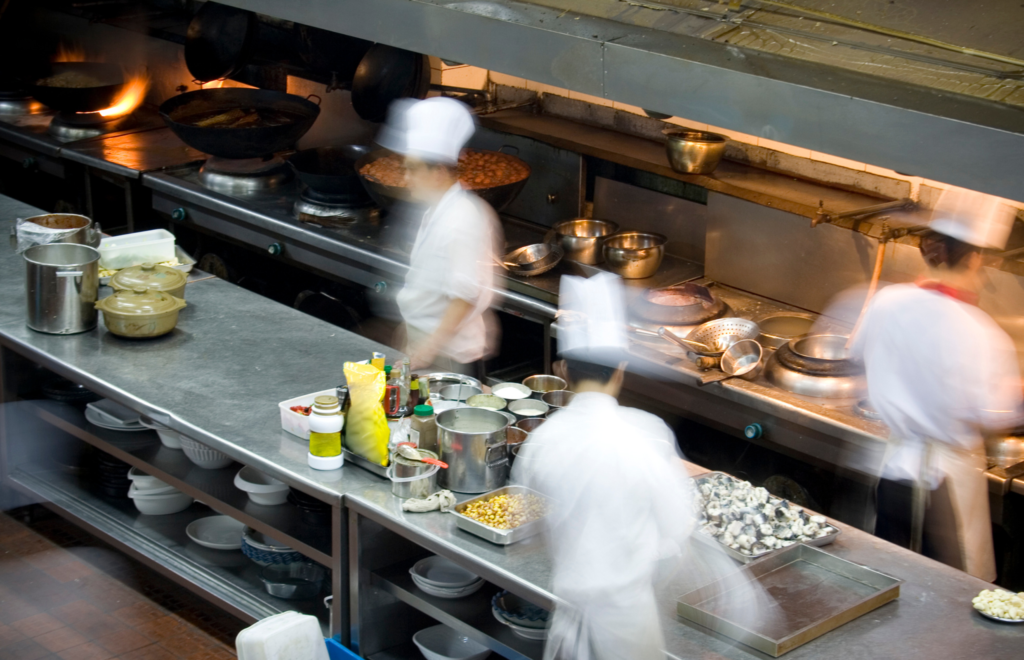How To Balance Goals For Long-Term Success

The end of the financial year is the perfect time for hospitality businesses to take a step back and assess not just their financial performance, but their overall commercial strategy. In an industry where margins are tight and operational challenges are constant, balancing the financial realities of running a business with delivering an exceptional customer experience is the key to long-term success.
So, how can you refine your approach to commercial management—aligning operations, finance, and strategy—to drive profitability without compromising quality? Here’s your hospitality business playbook for the year ahead.
Step 1: Rethink Commercial Management
Many hospitality businesses react to financial pressures by focusing solely on cost-cutting. While reducing unnecessary spending is important, true commercial success comes from balancing efficiency with value creation. The best-run hospitality businesses don’t just survive on tight margins—they actively manage their revenue, costs, and operations in a way that ensures sustainable profitability.
A strong commercial strategy asks:
- Are our financial and operational goals aligned, or are they pulling in opposite directions?
- Do we have the right commercial structure to grow without losing control of cash flow?
- Are we investing in the right areas to create long-term value rather than just short-term savings?
Step 2: Turn Your Numbers Into A Commercial Strategy
Understanding your financial position isn’t just about reviewing profit & loss statements at year-end—it’s about using financial data to drive smarter decisions every day. The best hospitality businesses track:
- Gross Profit & Net Profit Margins – To ensure pricing and cost structures are working effectively.
- Cash Flow Management – To avoid running out of liquidity, especially in a seasonal business.
- Operational Efficiencies – To measure where resources are being used effectively versus wasted.
- Revenue Per Available Seat/Room/Table – To optimise space utilisation and service speed.
Rather than making financial decisions in isolation, commercially smart businesses use this data to shape everything from menu design to staffing and pricing strategies.
Step 3: Align Financial Goals With Operational Excellence
One of the biggest challenges in hospitality is ensuring that financial goals don’t come at the expense of customer experience. A purely finance-driven approach might cut costs aggressively, but if service quality suffers, revenue will follow. Instead, your hospitality commercial strategy should focus on creating efficiencies without compromising the brand experience.
Ways to balance financial and operational goals include:
- Smarter menu engineering – Highlight high-margin items while keeping operational complexity manageable.
- Optimised staffing models – Aligning shifts with demand rather than just reducing hours.
- Strategic supplier partnerships – Building long-term relationships that provide consistency and cost stability.
- Investment in technology – Streamlining reservations, inventory, and reporting to improve both financial and operational efficiency.

Step 4: Develop A Resilient Revenue Model
Relying on a single revenue stream is risky. The most commercially successful hospitality businesses diversify their income while keeping operations lean. This could mean:
- Maximising peak trading times – Dynamic pricing, promotions, or reservation strategies to optimise revenue per seat.
- Adding alternative revenue streams – Private dining, retail, delivery, or event-based income.
- Building customer loyalty – Membership programs or exclusive experiences to encourage repeat business.
The key is to grow revenue without overcomplicating operations—an effective hospitality commercial strategy finds the right balance between innovation and operational capacity.
Step 5: Shift From Reactive To Proactive
Too many hospitality businesses operate reactively—making financial decisions in response to immediate problems rather than through long-term planning. A strong hospitality commercial strategy moves from firefighting to forecasting, ensuring businesses are ahead of challenges rather than constantly chasing solutions.
This means:
- Regular financial and operational check-ins – Monthly reviews rather than year-end surprises.
- Clear KPIs for commercial success – Not just sales figures, but profitability, customer spend, and operational efficiency.
- Investing in commercial expertise – Having dedicated commercial management ensures long-term profitability without daily operational distractions.
The best hospitality businesses aren’t just great restaurants, cafés, or hotels—they are commercially strong businesses that balance financial discipline with operational excellence. By integrating smart financial planning with a strong operational strategy, you can create a more resilient, profitable, and scalable business.
At The Engine Room, we specialise in hospitality commercial management strategy for hospitality businesses, ensuring financial health and operational efficiency go hand in hand. Whether you need a commercial deep dive, strategic financial planning, or ongoing management support, we’re here to help. Get in touch to see how we can power your hospitality business forward.

